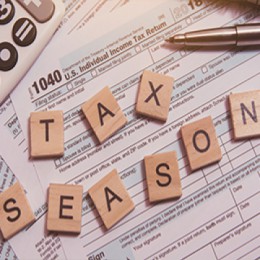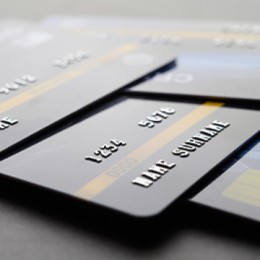
Credit cards are often used for a number of reasons, from the convenience of not carrying around cash, earning rewards with every transaction, or simply so you can make many or large purchases without worrying about it coming out of your account right away.
Although a credit card may be used similarly to a debit card, it works very different.
How credit cards work:
When you get a credit card it is set with a credit limit, or the amount you’re allowed to ‘borrow’. This limit is based on how much you qualify for. You can make purchases on your card and then pay the balance at a later date. Each month, there is a set date known as a ‘statement closing’ date.
After that date, you will be mailed a statement showing your previous balance of purchases and cash advances, the current transactions on your account, the remaining credit available under your credit line, the new balances of purchases and cash advances, the total new balance, the finance charge(s) that have accrued (if any), any other billed fees, and the Minimum Payment required. When your statement comes This is known as Revolving Credit, which is defined as “credit that is automatically renewed as debts are paid off”. Once you make a payment towards your balance, your available limit is adjusted.
- If you don’t pay off your entire credit card balance, this means you are carrying a balance. Carrying a balance triggers the accrual of interest which is then added onto the balance of your credit card and reflects on your next statement.
- The accrual of interest is where your interest rate comes into play. There are many stores and financial institutions that have credit card interest rates that can be very high, for example in the high 20-30% range. At CSE, our highest annual percentage rate, or APR, is 18.00%* and our lowest is 8.25%. Your credit score will determine the interest rate that you will be subject to if you carry a balance, based on qualification and approval guidelines at the credit union. By searching for the right credit card with the lowest interest rate possible for your credit tier, you can really save money if you plan on carrying a balance on your credit card.
- You can build (or hurt) your credit with a credit card. Many use a credit card to start or continue working on building their credit score. It’s smart to build your credit by using your credit card for something you have the money for already or know you can pay off, such as gas or groceries. Then, when you pay off your balance, this shows lenders that you’re using your card wisely and paying off your debts in a timely and responsible manner.
- But beware, many fall down a rabbit hole with credit cards, as they continue to make charges but only pay the minimum payments which rack up their debt and can hurt their credit score because now, they’ve used up much of their borrowed limit and this doesn’t look great to the credit bureaus. (Learn more about maintaining a good credit score by reading out Building and Repairing Credit blog.)
It’s always important to know how a credit card works before using it. While they can be a useful tool in your financial toolbox, for those who misuse credit cards, they can also hinder your finances if not used properly or responsibly.
Do you have a credit card through another financial institution that you’re being charged a high APR? Look no further for a local, and low-rate credit card than with us here at CSE! You can learn more about our credit cards, and our program here. Or even apply online today.
*1. APR = Annual Percentage Rate. Annual Percentage Rate is determined based on cardholder’s credit score at the time of account opening. CSE Federal Credit Union maintains the right not to open any CSE Visa Card account if: a) the information provided is incomplete, inaccurate or cannot be verified, b) if the member does not meet CSE FCU’s standard for creditworthiness, or c) member’s name and/or mailing address have been altered.
Subject to credit approval.
Fees associated with CSE Visa Card:
•Foreign Transaction - 1% of each transaction in U.S. Dollars
•Currency Conversion - 1% of each transaction in U.S. Dollars











0 comments